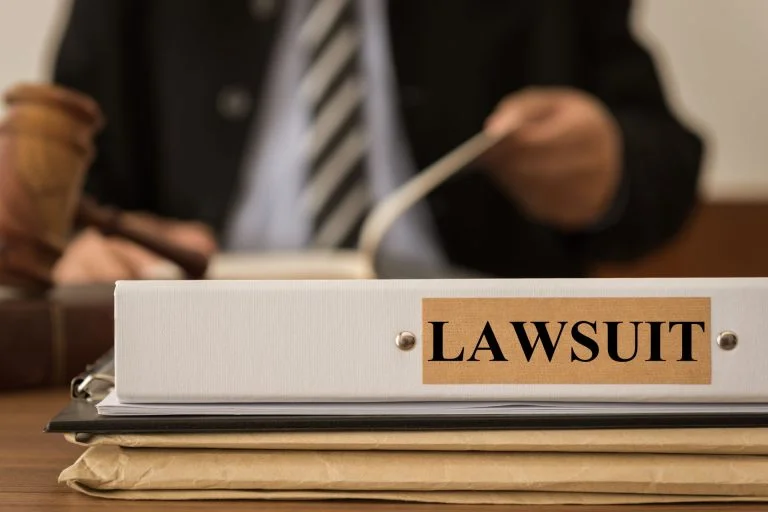LAW
The Difference Between Class Action Lawsuits and Mass Tort Litigations

Have you ever felt wronged by a large corporation, only to discover that several other people also share your experience? These days, companies produce products in mass quantities to reach millions of people, so it’s not uncommon for such a thing to happen.
The legal system steps in to provide justice and compensation for individuals who were sold defective or harmful products by greedy manufacturers. There are two main avenues through which justice can be achieved: class action lawsuits and mass torts.
Both of these deal with multiple injured parties, but their structures are different. You need to understand how each of them works before deciding on your best option. You can visit lawsuitlegalnews.com for more information.
Lawsuit Legal News is the place where you can find everything you should know about the latest mass torts and class action lawsuits in the US. Staying updated is essential to understanding the different complexities involved.
Class Action Lawsuits
Let’s say a defective drug causes thousands of people to suffer stomach upset. A class action lawsuit can merge these claims into one, represented by a few plaintiffs (which are called class representatives) acting on behalf of the entire group (the class).
This streamlines the process and helps save time and money for both the plaintiffs and the courts. Also, it allows individuals with smaller claims to fight large corporations as a collective.
Here’s how class actions work:
- Certification: A court must approve the case as a class action, ensuring claims are similar and the class is large enough (e.g., Federal Rule of Civil Procedure 23).
- Notice and opt-out: Class members are notified and can choose to opt-out and pursue an individual case.
- Settlement or trial: Lawyers proceed to gather evidence and may negotiate a settlement with the defendant. If the case is settled, the court will distribute the funds according to a plan. If not, the case goes to trial, and the outcome will apply to all the class members that did not opt-out.
Limitations of class action lawsuits
- Individual claims can be simplified or overlooked in favor of a broader settlement.
- Class representatives may not perfectly reflect the entire class’s needs, which can lead to settlements that don’t fully address everyone’s situation.
Mass Torts
Mass torts involve several individual lawsuits with similar cases. But since each case is separate, it allows the judge and jury to take a closer look at each plaintiff’s specific injuries and damages.
Most times, the evidence gathering might be consolidated, but the lawsuit remains distinct. Each plaintiff will present their case. They each get their own day in court where they can outline their unique predicament, which will lead to a higher, more tailored compensation amount.

The Pros and Cons of Each Approach
Class action lawsuits offer a faster and cheaper way for many people to get justice. One lawsuit can handle the claims of a whole group of people, saving time and money for everyone involved.
If the lawsuit is successful, everyone affected can get a share of the settlement money. This can be especially helpful when many people have small amounts of damage.
However, there’s a catch. People in a class action lawsuit don’t have much control over the case. The lawyers in charge make decisions about settlements and how to fight the case.
In the end, the money might be split equally among everyone in the group, no matter how much each person was hurt. This might not seem fair to people who suffered a lot.
Mass torts, on the other hand, focus on getting each person the money they deserve. Everyone gets their own chance to go to court and show the judge how they were hurt and how much money they lost. This can be important for people who were really hurt.
The downside is that mass torts can take a long time and cost a lot of money because each person has their own separate trial. This can be tough for people who don’t have a lot of money to spare.
Wrapping Up
Whether you choose a class action or a mass tort, remember that legal action can be complex. Consulting an experienced attorney is crucial. They can help you understand your options, navigate the legal process, and fight for the compensation you deserve.
LAW
Overview of the Role of a Bail Bondsman in the Judicial System

A bail bondsman in Alamance serves a critical function in the judicial system, providing a financial guarantee to the courts that a defendant will appear for their scheduled court appearances. We will explore the role of a bail bondsman, exploring how they operate within the legal framework, the ethical and legal challenges they face, and the broader implications of their work on defendants and the judicial system. This understanding is crucial for anyone interacting with or impacted by the bail system.
The Function of a Bail Bondsman
A bail bondsman, or bail bond agent, is a person or a company that provides bail bonds for individuals charged with crimes, allowing them to be released from custody until their court date. In exchange for this service, the bondsman charges a premium, typically around 10% of the total bail amount, which is non-refundable. The bondsman also often requires collateral to secure the bond, such as real estate or vehicles, to cover the risk of the defendant not appearing in court. This system enables individuals who might not have the full amount of bail to have still an opportunity to remain free while awaiting trial, facilitating continued employment and the ability to prepare a legal defense.
Legal Framework Governing Bail Bondsmen
State laws heavily regulate the operation of bail bondsmen, and these laws can vary significantly from one state to another. These regulations may dictate everything from the fees a bondsman can charge to the types of insurance or collateral they can accept. For example, some states have instituted caps on the fees bondsmen can charge, while others have more lenient approaches that allow the market to dictate terms.
State licensing requirements are also critical to the legal framework. Bail bondsmen must typically undergo a background check, complete educational courses, and pass a licensing exam. These requirements ensure that bondsmen are knowledgeable about the legalities of their role and conduct their business in a manner that aligns with state laws and protects the rights of the defendants they serve.
Additionally, bondsmen must maintain detailed records of their transactions and client interactions. State authorities can audit these records to ensure compliance with laws and regulations, protecting both the client’s and the state’s interests. These regulatory measures help maintain integrity and trust in the bail bonding process, essential for its effectiveness within the judicial system.
Ethical Considerations in Bail Bonding
Ethical considerations are paramount in the operation of bail bond services. The primary ethical duty of a bail bondsman is to ensure that the defendant understands the terms of the bail agreement, including their legal obligations and the consequences of failing to appear in court. This transparency is crucial in maintaining the integrity of the judicial process and ensuring that defendants are treated fairly.
Another ethical concern is the potential for exploiting vulnerable clients. Because many defendants and their families are desperate to secure release from custody, unscrupulous bondsmen might impose unfair terms, charge excessive fees, or demand unreasonable collateral. To counteract these risks, ethical bondsmen must adhere to state regulations and industry standards that promote fair treatment and prevent exploitation.
Moreover, bail bondsmen must navigate the fine line between providing a necessary service and ensuring that they do not inadvertently enable the commission of further crimes. For instance, if a bondsman repeatedly bails out individuals who then fail to appear in court or commit additional offenses, this could raise ethical questions about the bondsman’s judgment and the potential societal impact of their practices.
The Impact of Bail Bondsmen on Defendants and the Judicial System
The availability of bail bond services significantly impacts defendants, primarily by allowing those who cannot afford the full bail amount to avoid pre-trial incarceration. This ability to remain out of jail can be crucial for maintaining employment, caring for family, and preparing an effective defense. Studies have shown that defendants out on bail have better legal outcomes than those who remain detained, likely due to their increased ability to work closely with counsel and gather supportive evidence.
However, the role of bail bondsmen can also have controversial impacts on the judicial system. Critics argue that the bail bond system perpetuates inequalities by enabling wealthier defendants to gain freedom more easily than those from lower socio-economic backgrounds. This discrepancy can lead to calls for bail reform, including adopting more non-monetary release options and reconsidering the necessity of bail for non-violent offenders.
On a broader scale, the bail bond industry also influences judicial policies and practices. For example, the financial guarantee provided by bondsmen allows courts to release defendants with some assurance of return, potentially reducing jail overcrowding. However, this system also places a significant amount of power in the hands of private businesses, whose primary motive is profit rather than public service.
The role of a bail bondsman is multifaceted and deeply integrated into the fabric of the judicial system. While they provide essential services that enable defendants to maintain their freedom while awaiting trial, their operations raise important ethical, legal, and social questions. As the criminal justice landscape continues to evolve, the bail bonding industry must navigate these complexities while striving to serve its clients and society responsibly.
LAW
Why is Singapore Company Registration a Strategic Move for Entrepreneurs?

Registering a company in Singapore is an intelligent choice that leads to a multitude of opportunities. The advantages of registering a company in Singapore appeal to entrepreneurs who want to expand their business internationally.
These Singapore company incorporation advantages include the city-state’s favourable tax structure, well-connected infrastructure, and stable political environment. Through a simplified registration procedure and submitting the required paperwork, companies can take advantage of Singapore’s flourishing business environment, creating opportunities for expansion, creativity, and international success.
Why is Singapore Company Registration a Strategic Move for Entrepreneurs?
- Favorable tax system
With a corporate tax rate of 17% on taxable income, Singapore is thought to have one of the most competitive tax systems in the world. Furthermore, Singapore has some of the lowest value-added tax rates in the world.
Income generated locally is subject to income tax; capital gains are not subject to taxation. Since the income from these companies’ foreign subsidies is also tax-free, many entities are drawn to form holding companies.
A tiered tax system separating corporate and personal taxes applies to all Singapore-resident businesses, which can receive a partial tax exemption. This corresponds to an annual taxable income of up to S$300,000 at a standard tax rate of 8.5%.
In addition, Singapore maintains extensive networks of investment protection agreements with the majority of nations worldwide and 62 avoidance of double taxation agreements (DTAs). Double taxation is prevented from impacting economic transactions between Singapore and a treaty nation due to DTAs.
- Rule of law
To reduce the potential for corruption, Singapore hires the “best and brightest” citizens and pays them exceptionally well for positions in the civil service. Singapore has enforced severe penalties for official misconduct that come to light. The nation is currently among the least corrupt in the world as a result of these measures. Commercial courts work effectively to guarantee that contracts are upheld, a contemporary regulatory framework strongly protects intellectual property, and the nation’s elites do not steal wealth from the general population.
- No corruption
In Asian economies, where “connections” or bribes are frequently the only means of getting things done, most entrepreneurs shudder at the thought of dealing with corrupt officials. Singapore is the complete opposite. Because of the following factors, there is no corruption in the nation: a) the majority of public servants are highly compensated; b) corruption carries severe penalties; and c) Lee Kuan Yew, the nation’s founder, set a very high standard for moral rectitude and led by example. Therefore, you can be sure that if you incorporate a company in Singapore, it will succeed or fail based on its own merits and that you won’t be at the mercy of dishonest officials.
- English speaking workforce
English is a language used by almost all Singaporeans who are young or middle-aged. Workers from Singapore are among the world’s most skilled and productive. The nation’s excellent educational system generates a qualified workforce, but wages are still very competitive when compared to other nations.
- A professional image
Singapore is seen as a law-abiding, efficient, contemporary, and moral nation. Additionally, Singapore’s businesses benefit from this favorable image of the country. Your clients, partners, and suppliers will see your company as professional and high-quality if you choose to locate it in Singapore. People will form an initial impression of your company as well-run, competent, professional, and honest.
- Ease of incorporation
The regulatory framework in Singapore is among the most effective and free of bureaucracy worldwide. Singapore has been the top-ranked country in the World Bank’s Ease of Doing Business survey for nine years consecutively. The process of incorporating a business is easy to follow and has clear requirements. In most cases, incorporating a new company takes less than a day. Moreover, entrepreneurs can access their acra business profile online to monitor their company’s registration status and compliance with regulatory requirements.
- 100% foreign ownership and no currency control
A foreigner may own all of the stock in a company incorporated in Singapore. No local shareholders or partners are required. This lets you launch a business with the capital structure you want and divide the ownership according to your investment requirements. Moreover, there are no limitations on the amount of foreign currency you may bring into Singapore to invest in your Singaporean business.
There are no limitations on the repatriation of profits in Singapore. Capital gains from the sale of a business are not subject to taxes. Similarly, dividends given to shareholders are tax-free. Singapore does not place any limitations on the import or export of foreign currency. This seamless cross-border money transfer can give a company a great deal of flexibility.
LAW
Legal Ethics in Arizona: Maintaining Professional Standards in Practice

In the legal realm, ethics are not just a set of guidelines; they are the cornerstone of trust, integrity, and professionalism. Lawyers or attorneys play a pivotal role in upholding justice and ensuring the rule of law. In Arizona, as in any jurisdiction, adherence to ethical standards is paramount for maintaining public confidence in the legal system. This blog gives insights into legal ethics in Arizona, exploring the key principles, challenges, and strategies for maintaining professional standards in practice.
Understanding Legal Ethics
Legal ethics encompass a broad spectrum of principles and rules that govern the conduct of lawyers. At its core, legal ethics dictate how attorneys should interact with clients, colleagues, the court, and the public. In Arizona, these ethical standards are primarily codified in the Rules of Professional Conduct, which are enforced by the State Bar of Arizona.
Key Principles
In Arizona, attorneys play a pivotal role in navigating the complex legal landscape of the state. From advocating for clients in courtrooms to providing counsel on various matters ranging from business transactions to personal injury cases, attorneys in Arizona exhibit expertise across diverse practice areas. Whether safeguarding individual rights or representing corporate interests, attorneys in AZ uphold the principles of justice and strive to ensure fair outcomes within the dynamic framework of Arizona’s legal system.
- Competence: Lawyers are expected to provide competent and best representation to their respective clients. This entails possessing the necessary legal knowledge, criminal defense skills, and diligence to effectively advocate on behalf of their clients.
- Confidentiality: Maintaining client confidentiality is valuable in the legal profession. Lawyers must safeguard privileged information and refrain from disclosing it without the client’s consent, except in specific circumstances permitted by law.
- Conflict of Interest: Lawyers must avoid conflicts of interest that could compromise their loyalty to clients or their impartiality in representing them. This includes situations where the attorney’s personal or financial interests may conflict with those of the client.
- Candor and Honesty: Truthfulness and honesty are fundamental to the attorney-client relationship. Lawyers must communicate with clients and the court in a forthright manner, refraining from deceit or misrepresentation.
- Fairness and Respect: Lawyers are expected to treat all parties involved in legal proceedings for criminal cases with fairness, respect, and courtesy, irrespective of their personal opinions or the nature of the case.
Challenges in Maintaining Professional Standards
While the principles of legal ethics or administrative law may seem straightforward, navigating ethical dilemmas in practice can be complex. AZ Lawyers often face challenging scenarios that require careful consideration of competing interests and ethical obligations. Some common challenges include:
1) Zealous Advocacy vs. Professionalism
Balancing the duty to zealously advocate for clients with the obligation to maintain civility and professionalism in legal proceedings can be a delicate task, particularly in contentious matters.
2) Confidentiality in the Digital Age
With the proliferation of digital communication and social media, preserving client confidentiality has become increasingly challenging. Lawyers must adopt robust strategies to safeguard electronic communications and client data.
3) Managing Conflicts of Interest
Identifying and managing conflicts of interest can be intricate, especially in firms with multiple clients or complex business relationships. Failure to address conflicts appropriately can result in ethical breaches and legal consequences.
4) Dealing with Unethical Conduct
Lawyers may encounter situations where colleagues or opposing counsel engage in unethical conduct. Responding to such behavior while upholding professional standards requires careful judgment and adherence to ethical obligations.
5) Strategies for Maintaining Professionalism
Despite the challenges, there are several strategies that super lawyers can employ to uphold professional standards and navigate ethical dilemmas effectively:
6) Continuous Education
Staying abreast of changes in legal ethics and professional responsibility is essential. Lawyers should engage in regular training and education to enhance their understanding of ethical principles and their application in practice.
7) Consultation and Collaboration
When confronted with ethical dilemmas, seeking guidance from colleagues, mentors, or ethics committees can provide valuable insights and help identify ethical solutions.
8) Transparent Communication
Maintaining open and transparent communication with clients regarding ethical obligations and potential conflicts of interest fosters trust and ensures informed decision-making.
9) Ethical Decision-Making Frameworks
Adopting structured decision-making frameworks, such as the “four-way test” or ethical decision trees, can assist lawyers in analyzing complex ethical issues and arriving at principled resolutions.
10) Cultivating a Culture of Ethics
Law firms and legal organizations should prioritize a culture of ethics and integrity, where ethical conduct is not only expected but also celebrated and rewarded.
Final Thoughts
Upholding legal ethics is not merely a regulatory obligation; it is a moral imperative that underpins the integrity and credibility of the legal profession. In Arizona, maintaining professional standards in practice requires a steadfast commitment to ethical principles, a willingness to confront challenges by Arizona lawyers with integrity, and a dedication to fostering a culture of ethics within the legal community. By adhering to these principles and embracing ethical best practices, lawyers can uphold the noble ideals of justice, fairness, and the rule of law.

 BUSINESS1 year ago
BUSINESS1 year agoExploring the Benefits of Commercial Printing

 HOME IMPROVEMENT12 months ago
HOME IMPROVEMENT12 months agoThe Do’s and Don’ts of Renting Rubbish Bins for Your Next Renovation

 BUSINESS12 months ago
BUSINESS12 months agoBrand Visibility with Imprint Now and Custom Poly Mailers

 HEALTH8 months ago
HEALTH8 months agoThe Surprising Benefits of Weight Loss Peptides You Need to Know

 HEALTH8 months ago
HEALTH8 months agoYour Guide to Shedding Pounds in the Digital Age

 TECHNOLOGY10 months ago
TECHNOLOGY10 months agoDizipal 608: The Tech Revolution Redefined

 HOME IMPROVEMENT8 months ago
HOME IMPROVEMENT8 months agoGet Your Grout to Gleam With These Easy-To-Follow Tips

 HEALTH11 months ago
HEALTH11 months agoHappy Hippo Kratom Reviews: Read Before You Buy!











